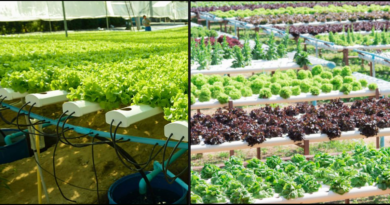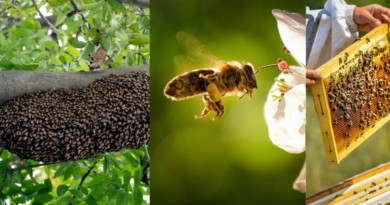Biotechnology :IMPACT ON CRISPR and Genetic Engineering

Introduction:
In biotechnology and organic farming, a silent revolution is underway. This short excursion will reveal the revolutionary potential of these technologies, demonstrating how they enable organic farmers to grow resilient crops, improve yields, and meet the difficulties of a quickly evolving environment. As we go deeper into this field, we’ll examine the science underlying these breakthroughs and their significant implications for the long-term viability of organic farming.
DEFINING BIOTECHNOLOGY:
A diverse branch of science and technology known as “biotechnology” works with living things, cells, and biological systems to create tools, procedures, and applications that are useful to a range of businesses. Using biological systems, cellular and molecular processes, and genetic material, this cutting-edge field develops solutions for the environment, industry, agriculture, and health. Biotechnologyhttp://en.wikipedia.org/wiki/Biotechnology is the use of scientific knowledge from several domains, such as biology, chemistry, genetics, and others, to create new goods and technologies that enhance life quality and deepen our understanding of living things.
Biotechnology in CRISPR and Genetic Engineering:
Genetic engineering and CRISPR are cutting-edge domains where biotechnology is essential to the development of breakthroughs that have far-reaching effects on many different industries. These technologies use biotechnology concepts to modify living things’ genetic material with previously unheard-of precision and control over DNA alteration.
CRISPR Technology:
The foundation of CRISPR (Clustered Regularly Interspaced Short Palindromic Repeats) technology is biotechnology. With the use of this innovative gene-editing technology, researchers may accurately alter particular genes inside the DNA of an organism. Utilizing biotechnological concepts, CRISPR has developed into an adaptable and easily obtainable instrument for precise genetic modifications in an extensive variety of species, encompassing bacteria, plants, and mammals.
Genetic Engineering:
A branch of biotechnology known as genetic engineering involves the intentional alteration of an organism’s genetic makeup to provide desired features or attributes. Within the field of biotechnology, genetic engineering utilizes advanced molecular methods to modify genes, enabling the development of organisms with better characteristics, such as heightened resilience against illnesses, heightened output, or modified nutritional makeup.
Ethical Considerations:
The convergence of genetic engineering, CRISPR technology, and biotechnology presents ethical questions. The capacity to modify an organism’s genetic composition raises concerns regarding the appropriate and moral application of these technologies. Therefore, continuing debates and moral guidelines are necessary to direct the right use of biotechnology in these revolutionary sectors.
Agricultural Biotechnology:
Biotechnology is essential to agriculture because it allows for the genetic engineering of improved agricultural features. The creation of genetically modified organisms (GMOs) that exhibit desirable traits, including pest resistance or stress tolerance, serves as an example of how biotechnology is changing conventional agricultural methods. Specifically, CRISPR enables precise alterations that may be used to enhance resistance, nutritional content, and agricultural productivity.
Applications in Medicine:

The use of biotechnology in genetic engineering and CRISPR has fueled revolutionary advances in medicine. The use of biotechnology in genetic engineering and CRISPR has fueled revolutionary advances in medicine. The promise of precisely editing genes is that it may be used to treat genetic problems, provide individualized therapy, and possibly even cure some diseases. The ability to modify human cells genetically thanks to biotechnological techniques opens up new therapeutic and therapy options.
Together, biotechnology, CRISPR, and genetic engineering constitute a potent fusion that is transforming how we think about health, farming, and the environment. Biotechnological principles drive these technologies, which provide previously unheard-of chances for innovation but also need responsible application and careful consideration of ethical consequences.
Let’s explore the possibilities of biotechnology in organic farming with us—a synergy that might lead to a future that is more resilient, environmentally conscious, and greener.
KEY POINTS:
Super-Precise Farming with CRISPR:
- The superhero of gene editing is CRISPR-Cas9https://en.wikipedia.org/wiki/CRISPR. It allows very targeted gene modifications of plants by farmers.
- We can reduce the amount of pesticides used in organic farming by strengthening crops against pests and illnesses using precision editing.
Better Crops, More Good Stuff:
- To improve crops, genetic engineering works similarly to a wizard’s spell. It contributes to their continued growth, increased vitality, and general awesomeness.
- Organic farmers may reap more yields with this magic without giving up on environmentally beneficial practices. Embracing Eco-Friendly Self-Care and Beauty for a Greener You
Making Crops Warrior Strong:
We are able to create crops that act as little soldiers against common illnesses because of genetic engineering.
This keeps our organic farms happy and healthy by reducing the need for nasty chemicals.
Beating the weather blues:
With the help of CRISPR, we can now cultivate crops that can withstand extreme temperatures and droughts.
Giving our plants a superhero cape to combat climate change is analogous to doing this.
Being Nice to the Planet:
- Biotechnology is like a high-five to the world. It enables us to use fewer chemicals and to treat the environment more gently.
- Organic farming is even more amazing since it is kind to the environment.
Saving Our Plant Pals:
We can preserve our current plant diversity and perhaps expand it with the use of genetic engineering.
To maintain the diversity and strength of our organic farms, this is akin to assembling a plant superhero squad.
Solving Farm Challenges:
- For farmers, biotechnology is like having a whole toolbox full of answers. It assists them in addressing issues such as depleted soil, inadequate water, and a lack of nutrients.
- Farmers may further enhance the marvels of organic farming by utilizing these useful instruments.
Talking to friends about GMOs:
- The term “genetically modified organisms,” or GMOs, isn’t as terrifying as it sounds. It’s all about improving plants.
- We can help everyone realize how amazing genetically modified organisms (GMOs) can be for organic farming by educating our friends about them and being open and honest about them.
Conclusion:
The combination of genetic engineering and CRISPR approaches in organic farming is a ground-breaking advancement in sustainable agriculture. How Sustainable Practices Can Extend Your Life Organic farmers may overcome obstacles, enhance crop quality, and support global food security by utilizing biotechnology. The combination of biotechnology and organic farming is poised to revolutionize the agricultural landscape as technology progresses, providing a well-balanced mix of ecological awareness and innovation.




